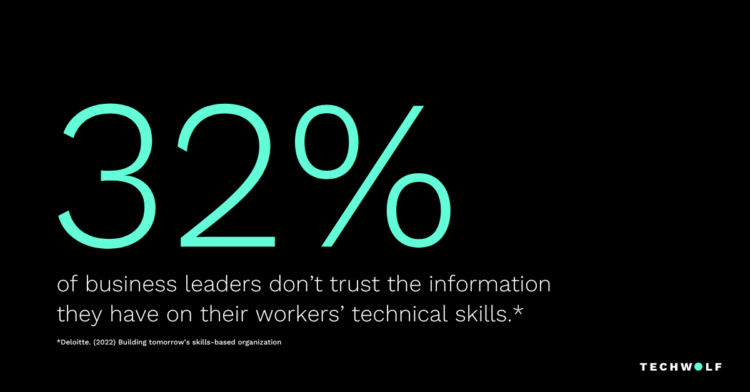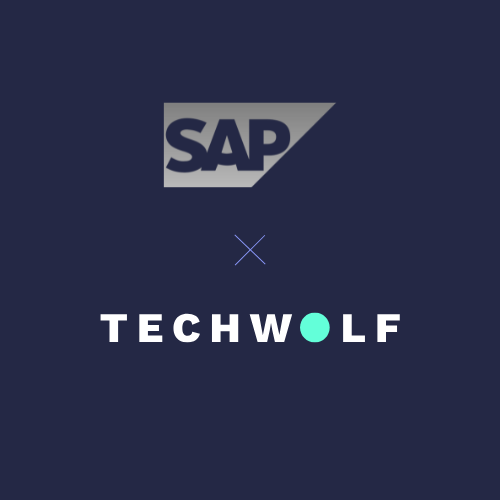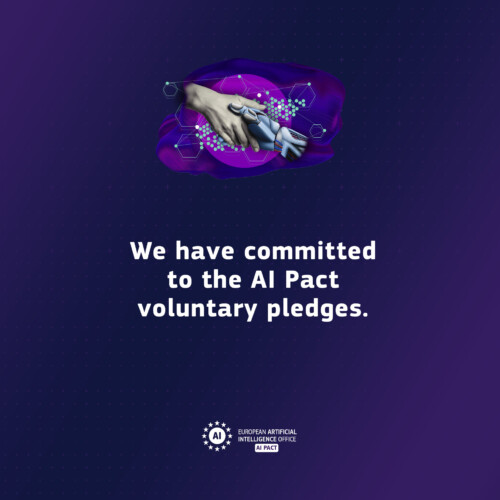The role of AI in creating – and maintaining – a skill framework
How AI can help create a strong skill framework that is tailored, comprehensive and dynamic.
AI is now a big part of our daily lives. From social media to online banking, even smart devices in the home. So it's no surprise that AI is also entering our workplaces, from automated workflows to managing the talent process or analysing learning and development outcomes. AI is transforming the way jobs are managed and will play a vital role in the future of work.
The rise of the skill-based system
Organisations are now adopting a skill-first approach. According to LinkedIn’s 2022 Workplace Learning Report, the organisations that shift to skills-based planning have a “unique chance to catalyse learning culture and capitalise on emerging trends — especially the convergence of learning, talent acquisition, talent development, and the red-hot rise of internal mobility”.
A skill framework is the foundation
To make this possible, you need a skill framework, built through skill data. This is collated from a variety of sources from HR systems to LXPs, LMSs, and project management systems such as Asana. For it to have a tangible impact on your business and to withstand the test of time, it needs to be tailored (to give you the right insights), comprehensive, and dynamic so it evolves with business and individual needs.
Therein lies the challenge — and the reason why only 10% of HR and business executives currently have a skills database.
Your organisation’s skills are ever changing
Skills change all the time. What we’ve learnt through building TechWolf over the last five years is that maintaining a skill framework manually is near impossible and incredibly time-consuming. You need AI to do much of the heavy lifting.
At TechWolf our AI works to automatically capture emerging skills within an organisation’s workforce so HR and business leaders always have an up-to-date view — freeing up time that can be used more efficiently elsewhere in the organisation.
With the right data being gathered from all areas of your company and then tracking and updating that skill data, you can get a complete overview of what your skills ecosystem looks like. AI can also augment internal skill data with public labour data to further enrich this data. It can also infer skills that someone may not have considered, for example completion of projects or make recommendations about development opportunities to build new skills.
High-quality data is key
AI is only as good as the data sources it works with. Give it inaccurate data, and you’ll get inaccurate results. AI, working at scale in your organisation, can drastically increase bias if it is modelled on biased or incomplete data. Before you even start giving your AI skill data to train on, you need to audit your data to ensure it’s as accurate and representative as possible.
At the same time, it’s essential to be mindful when choosing which data to collect — at TechWolf we mandate using non-invasive sources to avoid infringing on employee privacy, such as email, private chat or any other data sources that could be seen as prying. Of equal importance is being transparent with employees and other stakeholders on what data source is behind what insight.

Building trust in data
This builds trust in the skill data and the decisions it influences. Currently, 32% of business leaders don’t trust the information they have on their workers’ technical skills. This rises to 52% when looking at soft skills and human capabilities like emotional intelligence. Another aspect of building trust in your skill framework is to ensure your AI’s decisions are fully explainable and that you can clearly state where your data is coming from. Building trust is critical in order to encourage adoption and continual improvement.






